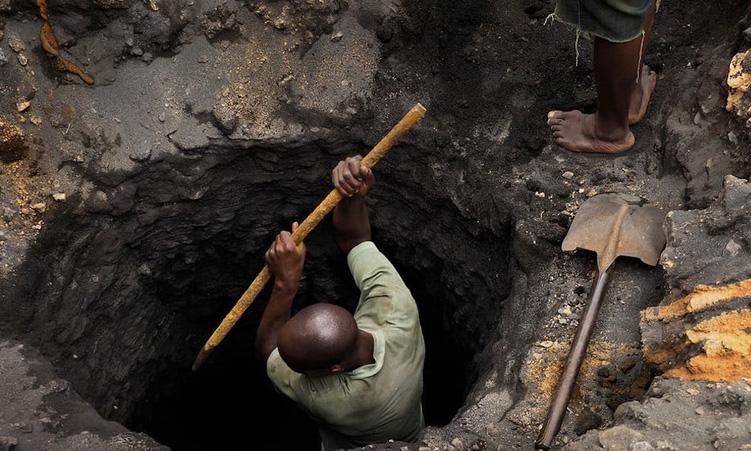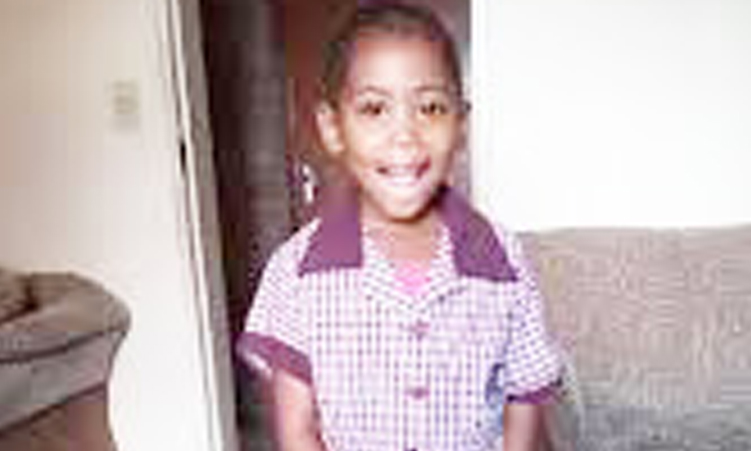THE past few weeks have been characterised by some of the most extreme acts of violence against women and children in Namibia that have ever been witnessed.
From the horrific acts perpetrated, allegedly by the male parent, against four-month-old twins, resulting in the death of one of them; to a case of butchering of a young woman, not the first incident of this kind, to numerous other serious cases documented in the media, the country has once again been shocked by the viciousness of these crimes. But generally acts of violence against women and children are ongoing.It is just that public attention has once again been galvanised enough by these most recent atrocities to again shine the spotlight on a phenomenon that we seem unable to deal with effectively or bring to an end.Criminal acts are proliferating in Namibia, but even rampant corruption and theft cannot be compared with acts of torture and abuse and killings that point to a very deep societal problem in our midst and that should be eradicated at all costs if we are to call ourselves a peaceful society.At present, we cannot do so.Because the unabated acts of terror against women and children, the defenceless and the innocent, instead demonstrates a violent side to our society that should be of major concern given our commitment to human rights.Unfortunately we lack statistics to show the magnitude of this problem, both in Namibia and the wider Southern African Development Community (SADC) region.It is something we need to give priority to doing, because if we cannot measure the extent of the problem, our efforts to curb it would be less than effective.Namibia is signatory to the SADC addendum to the 1997 Declaration on Gender and Development concerning the Prevention and Eradication of Violence against Women and Children, which calls for an ‘integrated’ approach to this problem.Namely combining the legal, socio-economic, political, educational approaches to combat the crime.But in at least a few important respects we are found lacking: we don’t have adequate counselling for victims; we don’t have shelters for battered women and children (the Centre we have is but a temporary harbour); among others.Violence against women and children is of course a global problem.We are not unique, but at the same time cannot lull ourselves into the complacency of doing little about it.We verbally condemn such assaults on our defenceless women and children, but once the headlines disappear, we tend to get on with our lives until the next incident occurs and there’s again a flurry of condemnation.What we must know at this point, regardless of a lack of proper statistics, is that this is a deep society problem that will not be solved with a ‘band-aid’ approach of tightening up legislation only, for example, for we have several progressive laws in place, but they will not solve the problem, but simply put in place more effective mechanisms to deal with the perpetrators! The broader Namibian community has to be involved in fighting this scourge with all the means at our disposal, because ultimately it affects all of us.Those who believe otherwise are living in a fool’s paradise.We know that rape, for example, is a grossly under-reported crime, particularly given the proven fact that rape and abuse are most often perpetrated by family and close friends.So the statistics recently mentioned in the Legal Assistance Centre’s 2006 Rape in Namibia report of 60 in 100 000 women being victims of rape, are surely the tip of the iceberg, and do not reflect adequately the extent of the problem in our country.We all need to get involved, as a society, and take a holistic approach.What use is it to simply warn women and children not to venture into the streets after dark, when their abusers are waiting at home? We cannot keep silent any longer.We must declare all-out war against this terror in our midst.But generally acts of violence against women and children are ongoing.It is just that public attention has once again been galvanised enough by these most recent atrocities to again shine the spotlight on a phenomenon that we seem unable to deal with effectively or bring to an end.Criminal acts are proliferating in Namibia, but even rampant corruption and theft cannot be compared with acts of torture and abuse and killings that point to a very deep societal problem in our midst and that should be eradicated at all costs if we are to call ourselves a peaceful society.At present, we cannot do so.Because the unabated acts of terror against women and children, the defenceless and the innocent, instead demonstrates a violent side to our society that should be of major concern given our commitment to human rights.Unfortunately we lack statistics to show the magnitude of this problem, both in Namibia and the wider Southern African Development Community (SADC) region.It is something we need to give priority to doing, because if we cannot measure the extent of the problem, our efforts to curb it would be less than effective.Namibia is signatory to the SADC addendum to the 1997 Declaration on Gender and Development concerning the Prevention and Eradication of Violence against Women and Children, which calls for an ‘integrated’ approach to this problem.Namely combining the legal, socio-economic, political, educational approaches to combat the crime.But in at least a few important respects we are found lacking: we don’t have adequate counselling for victims; we don’t have shelters for battered women and children (the Centre we have is but a temporary harbour); among others.Violence against women and children is of course a global problem.We are not unique, but at the same time cannot lull ourselves into the complacency of doing little about it.We verbally condemn such assaults on our defenceless women and children, but once the headlines disappear, we tend to get on with our lives until the next incident occurs and there’s again a flurry of condemnation.What we must know at this point, regardless of a lack of proper statistics, is that this is a deep society problem that will not be solved with a ‘band-aid’ approach of tightening up legislation only, for example, for we have several progressive laws in place, but they will not solve the problem, but simply put in place more effective mechanisms to deal with the perpetrators! The broader Namibian community has to be involved in fighting this scourge with all the means at our disposal, because ultimately it affects all of us.Those who believe otherwise are living in a fool’s paradise.We know that rape, for example, is a grossly under-reported crime, particularly given the proven fact that rape and abuse are most often perpetrated by family and close friends.So the statistics recently mentioned in the Legal Assistance Centre’s 2006 Rape in Namibia report of 60 in 100 000 women being victims of rape, are surely the tip of the iceberg, and do not reflect adequately the extent of the problem in our country.We all need to get involved, as a society, and take a holistic approach.What use is it to simply warn women and children not to venture into the streets after dark, when their abusers are waiting at home? We cannot keep silent any longer.We must declare all-out war against this terror in our midst.
Stay informed with The Namibian – your source for credible journalism. Get in-depth reporting and opinions for
only N$85 a month. Invest in journalism, invest in democracy –
Subscribe Now!










